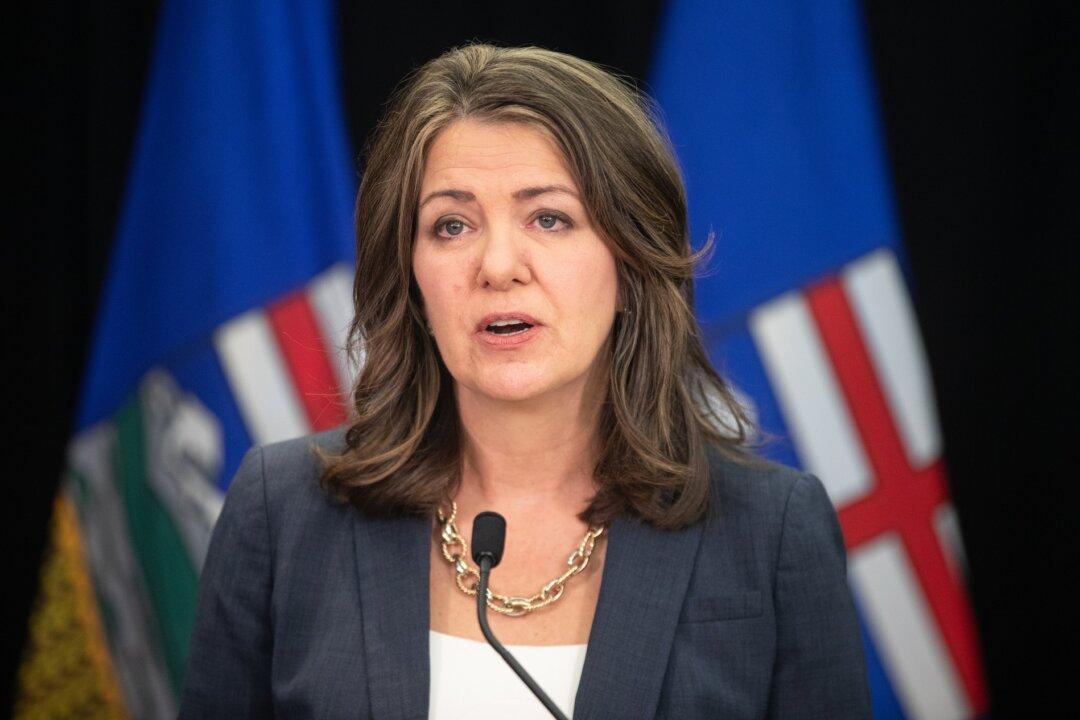Alberta Premier Danielle Smith’s government is moving forward with legislation to prohibit sex change surgery for minors, require parental consent for students to change pronouns or names at schools, and establish women-only sports divisions.
Smith said on Oct. 31 that the pieces of legislation on these three items have been “developed, drafted, and tabled with the express purpose of striking the right balance for the health, safety and well-being of all children and youth in our province.”





